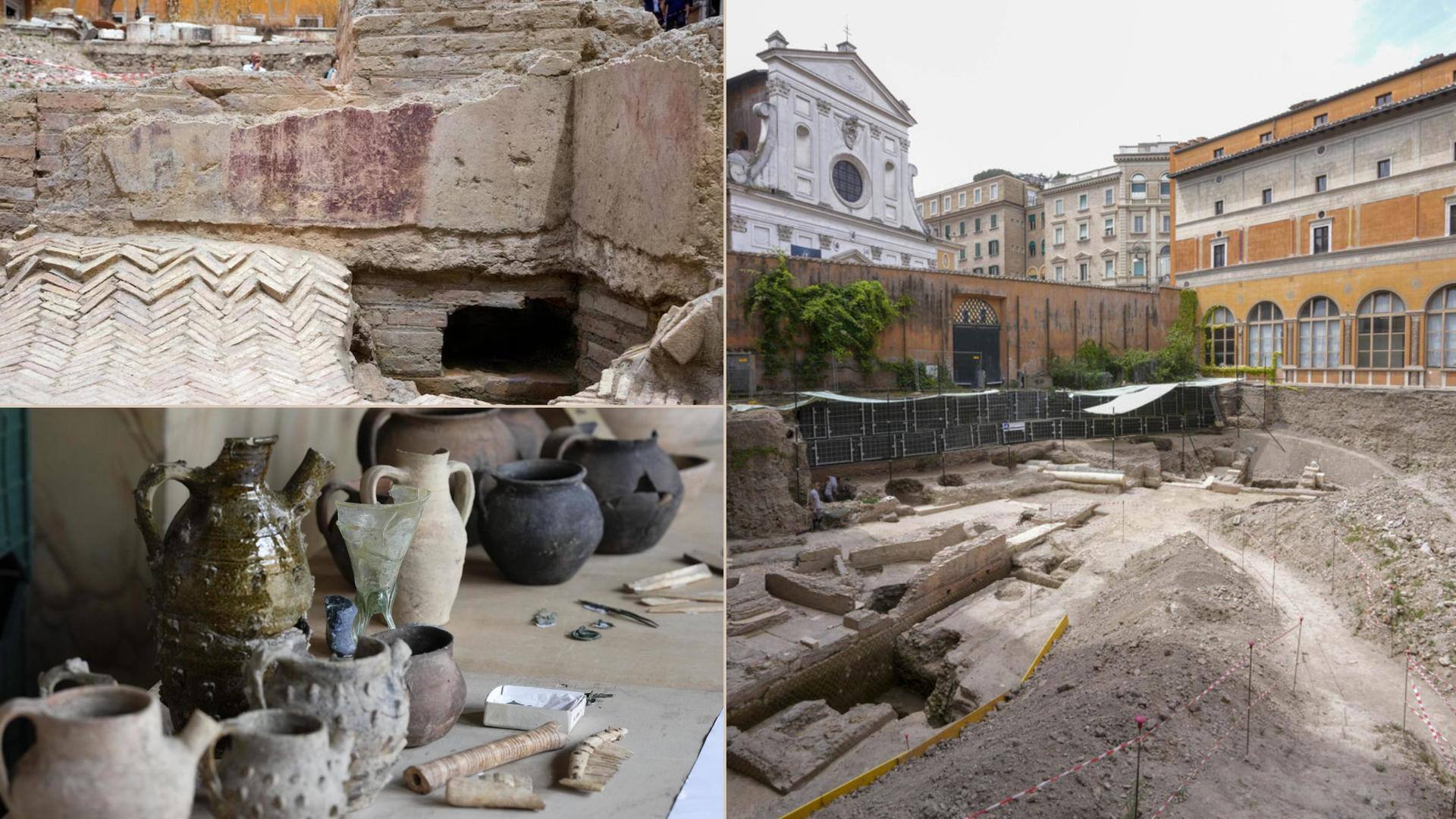
Emperor Nero's long-lost theater unearthed at Rome hotel site
What's the story
During the planned renovations of a prospective Four Seasons hotel, archaeologists made an astounding discovery - the ruins of Nero's Theater, an imperial theater mentioned in ancient Roman literature but never previously uncovered.
The hotel is located close to the Vatican City.
Since 2020, archaeologists have been conducting extensive excavations within the Palazzo della Rovere's walled garden as part of the building's renovations.
Confirmation
Official praised the 'exceptional' excavation finds
Leonardo Visconti di Modrone, the governor-general of the Order of the Holy Sepulchre of Jerusalem, confirmed during a news conference on Thursday that the archaeological findings were discovered at the incoming hotel chain, Four Seasons.
Officials praised the excavation finds as "exceptional" since they offer a unique glimpse at a period of Roman history from the Roman Empire to the 15th century.
Emporer Nero
Who was Emporer Nero?
Nero, who ruled from AD 54 until his death in AD 68, was the fifth and last Roman emperor of the Julio-Claudian dynasty.
Nero was criticized for his obsession with the arts and was often referred to as the "actor-emperor."
His public performances as an actor, poet, musician, and charioteer scandalized his peers as these professions were typically performed by slaves and public performers.
Findings
Here's what archaeologists found
Archaeologists discovered marble columns and plaster with gold-leaf decorations that were mentioned in writings by the ancient Roman scholar and philosopher Pliny the Elder, as well as by Suetonius and Tacitus.
These made them conclude that the theater was there at the site located just off the Tiber River.
Researchers believe remnants from the decorations resembled those of Nero's own residence.
Quote
The land was leased to raise money
The Palazzo is home to a historic Vatican chivalric order that leases the space to a hotel in order to collect money for Christians in the Holy Land. It occupies a whole city block along the broad Via della Conciliazione leading to St. Peter's Square.
Significance
Why is the discovery significant?
Due to the relative obscurity of this period in Rome's history, the latest discovery is exceptionally significant and noteworthy.
The excavation provided a rare chance to investigate several eras of Roman history, from the empire until the 15th century.
Artifacts from the 10th century, including colored glass goblets and ceramic fragments, were among the most significant finds.
Future
The hotel is anticipated to open for Vatican's 2025 Jubilee
According to news reports, the hotel is expected to open in time for the Vatican's 2025 Jubilee, when it is anticipated that about 30 million tourists and pilgrims will visit Rome.
The moveable artifacts, according to officials, would be relocated to a museum, and after all the research is finished, the theater's ruins would be covered once more.